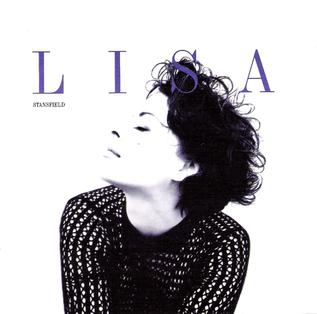Related Research Articles

The Rascals was an American rock band, formed in Garfield, New Jersey, United States, in 1965.

Chess Records was an American record company established in 1950 in Chicago, specializing in blues and rhythm and blues. It was the successor to Aristocrat Records, founded in 1947. It expanded into soul music, gospel music, early rock and roll, and jazz and comedy recordings, released on the Chess and its subsidiary labels Checker and Argo/Cadet. The Chess catalogue is currently owned by Universal Music Group and managed by Geffen Records.
Vernice "Bunky" Green is an American jazz alto saxophonist and educator.
Rotary Connection was an American psychedelic soul band, formed in Chicago in 1966.

Maurice White was an American singer, musician, songwriter, and record producer. He was the founder, leader, main songwriter, and producer of the band Earth, Wind & Fire, and served as the band's co-lead singer with Philip Bailey. Described as a "visionary" by Vibe and a "mastermind" by Variety, White was nominated for a total of 22 Grammys, of which he won seven. He was inducted into the Rock and Roll Hall of Fame and the Vocal Group Hall of Fame as a member of Earth, Wind & Fire, and was also inducted individually into the Songwriters Hall of Fame. He additionally worked with artists such as Deniece Williams, Cher, the Emotions, Barbra Streisand, Ramsey Lewis, and Neil Diamond.
Ronald Wayne Laws is an American jazz, jazz fusion, smooth jazz saxophonist. He is the younger brother of jazz flutist Hubert Laws, jazz vocalist Eloise Laws and the older brother of Debra Laws.

Philip Upchurch is an American jazz and blues guitarist.

Cleveland Josephus Eaton II was an American jazz double bassist, producer, arranger, composer, publisher, and head of his own record company in Fairfield, Alabama, a suburb of Birmingham. His most famous accomplishments were playing with the Ramsey Lewis Trio and the Count Basie Orchestra. His 1975 recording Plenty Good Eaton is considered a classic in the funk music genre. He has been inducted into both the Alabama Jazz Hall of Fame and the Alabama Music Hall of Fame.

Eugene McDuff, known professionally as "Brother" Jack McDuff or "Captain" Jack McDuff, was an American jazz organist and organ trio bandleader who was most prominent during the hard bop and soul jazz era of the 1960s, often performing with an organ trio. He is also credited with giving guitarist George Benson his first break.

Spirit is the seventh studio album by Earth, Wind & Fire, released on September 28, 1976 by Columbia Records. The album rose to No. 2 on both the Billboard 200 and Top Soul Albums charts. Spirit has also been certified Double Platinum in the US by the RIAA.

Time Peace: The Rascals' Greatest Hits is a greatest hits album from the Rascals, released on June 24, 1968. It reached number one on the Billboard Pop Albums chart by September 1968. It also topped the Cash Box albums chart with a run in the Top 10 for 20 consecutive weeks

Groovin' is the third album by rock band The Young Rascals. The album was released on July 31, 1967 and rose to #5 on the Billboard Top LPs chart and number 7 on the R&B chart. Eight of the songs were released on singles with the title track reaching number 1 on the Pop chart in the U.S.

Real Love is the second studio album by British singer Lisa Stansfield, released by Arista Records on 11 November 1991. Stansfield co-wrote all songs with Ian Devaney and Andy Morris. Devaney and Morris also produced the album. Real Love received positive reviews from music critics and reached top ten on the charts in various countries, including number three in the United Kingdom. Five singles were released from the album, including "Change" and "All Woman". Real Love was rereleased as a deluxe 2CD + DVD set in the United Kingdom on 10 November 2014 and in Europe on 21 November 2014.

Mother Nature's Son is a studio album recorded by Ramsey Lewis which was released on Cadet Records in 1968. The album peaked at No. 4 on the Billboard Top Jazz Albums chart and No. 10 on the Billboard Top Soul Albums chart.
Charles Stepney was an American record producer, arranger, songwriter and musician. Stepney is noted for his work with artists such as The Dells, Ramsey Lewis, Rotary Connection and Earth, Wind & Fire.

Don't It Feel Good is a 1975 funk/jazz-funk album by Ramsey Lewis released on Columbia Records. The album peaked at No. 3 on the Billboard Top Jazz Albums chart and No. 5 on the Billboard Top Soul Albums chart.
The discography of American rock and roll icon Bo Diddley includes 37 singles, 24 studio albums, 24 compilation albums, 6 live albums, and several EPs. He has also appeared on 5 singles and 6 albums.

Groovin' with the Soulful Strings is the second album by the American soul-jazz instrumental group the Soulful Strings. It was released in October 1967 on the Cadet record label, a subsidiary of Chess Records. The album includes the hit single "Burning Spear", written by the group's leader, musical arranger Richard Evans, and interpretations of popular songs by the Beatles, the Temptations, Burt Bacharach and Hal David, and others.

Dorothy's Harp is a studio album by jazz harpist Dorothy Ashby released in 1969 via the Cadet label. A few years after releasing Dorothy’s Harp, she started working with Stevie Wonder. The record includes two Brazilian-touched compositions: "Reza" and "Canto de Ossanha". The album was re-released as a CD in 2006.
This is the discography for American jazz musician Oliver Nelson.
References
- 1 2 3 4 5 6 7 Ubick, Dan; Ma, David (October 8, 2014). "Bassist-turned-arranger Richard Evans put the soul in Cadet Records". Wax Poetics . Retrieved September 30, 2015.CS1 maint: discouraged parameter (link)
- 1 2 Degiorgio, Krik. "Richard Evans Special". Red Bull Music Academy Radio . Retrieved September 30, 2015.CS1 maint: discouraged parameter (link)
- 1 2 3 4 5 6 7 8 9 10 11 12 Grogan, Larry (October 8, 2014). "Richard Evans 1932–2014". Funky16Corners. Retrieved September 30, 2015.CS1 maint: discouraged parameter (link)
- 1 2 3 4 Grogan, Larry. "Richard Evans: The Cadet Concept – 10 of His Greatest". F16zine. Retrieved September 30, 2015.CS1 maint: discouraged parameter (link)
- 1 2 Billboard Review Panel (January 23, 1971). "Album Reviews" > "Special Merit Picks". Billboard . p. 48. Retrieved September 30, 2015.CS1 maint: discouraged parameter (link)
- 1 2 Rodewald, Nik (November 18, 2014). "Remembering Richard Evans". BerkleeJazz . Retrieved October 1, 2015.CS1 maint: discouraged parameter (link)
- ↑ Lewis, Pete (September 2015). "Marlena Shaw: California Soul II Soul". Blues & Soul . Retrieved September 30, 2015.CS1 maint: discouraged parameter (link)
- ↑ Kellman, Andy. "Rotary Connection". AllMusic . Retrieved September 30, 2015.CS1 maint: discouraged parameter (link)
- ↑ "Chicago Soul – Electric Blues, Funk and Soul: The New Sound of Chicago in the 1960s". Soul Jazz Records . Retrieved October 1, 2015.CS1 maint: discouraged parameter (link)
- ↑ "Richard Evans" > "Chapter 6". Berklee College of Music Archives . Retrieved September 30, 2015.CS1 maint: discouraged parameter (link)
- 1 2 "Cadet Album Discography (1965–1971)". Both Sides Now Publications. Retrieved September 30, 2015.CS1 maint: discouraged parameter (link)
- ↑ Billboard Review Panel (March 11, 1967). "Album Reviews" > "Special Merit Picks". Billboard . p. 47. Retrieved September 30, 2015.CS1 maint: discouraged parameter (link)
- 1 2 Billboard staff (June 22, 1968). "Soulful Strings in Debut at Chi Club". Billboard . p. 14. Retrieved September 30, 2015.CS1 maint: discouraged parameter (link)
- ↑ Goble, Ryan Randall. "Soulful Strings Groovin' with the Soulful Strings". AllMusic . Retrieved September 30, 2015.CS1 maint: discouraged parameter (link)
- 1 2 "Soulful Strings: Awards". AllMusic . Retrieved September 30, 2015.CS1 maint: discouraged parameter (link)
- ↑ Billboard Review Panel (July 6, 1968). "Album Reviews". Billboard . p. 38. Retrieved September 30, 2015.CS1 maint: discouraged parameter (link)
- 1 2 Magnus, Johnny (1968). Another Exposure (LP liner-note essay). The Soulful Strings. Cadet Records.
- ↑ "Soulful Strings Another Exposure". AllMusic . Retrieved September 30, 2015.CS1 maint: discouraged parameter (link)
- ↑ Billboard Review Panel (November 16, 1968). "Album Reviews". Billboard . p. 69. Retrieved September 30, 2015.CS1 maint: discouraged parameter (link)
- ↑ Back by Demand: The Soulful Strings in Concert (LP sleeve credits). The Soulful Strings. Cadet Records. 1969.CS1 maint: others in cite AV media (notes) (link)
- 1 2 Grogan, Larry. "Richard Evans: The Cadet Concept – 10 of His Greatest [cont.]". F16zine. Retrieved September 30, 2015.CS1 maint: discouraged parameter (link)
- ↑ Talevski, Nick (1999). The Encyclopedia of Rock Obituaries . London: Omnibus Press. p. 65. ISBN 0-7119-7548-5.
- ↑ "GRT Consolidated Chess/Cadet Album Discography (1971–1975)". Both Sides Now Publications. Retrieved September 30, 2015.CS1 maint: discouraged parameter (link)
- ↑ Billboard Music Popularity Chart Department (December 28, 1968). "Billboard Best Bets for Christmas". Billboard . p. 57. Retrieved September 30, 2015.CS1 maint: discouraged parameter (link)